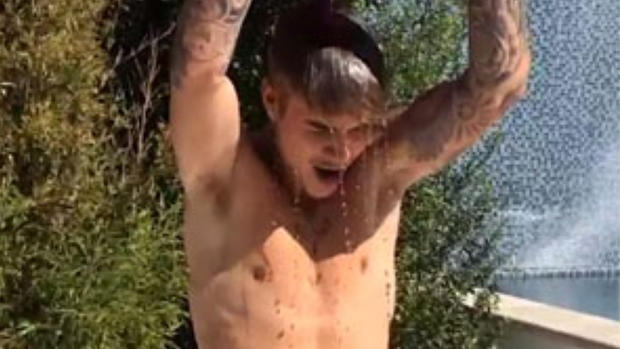Ice Bucket Challenge nets millions for ALS charity
Until recently people seeking a cure for Amyotrophic Lateral Sclerosis (ALS) , also known as Lou Gehrig's disease, had trouble getting the public's attention. That is no longer the case thanks to the ALS Ice Bucket Challenge.
According to the ALS Association, it has received $15.6 million in donations between July 29 and August 18 from people who took videos of themselves being doused with cold water . That's an increase of 767 percent over the same time period last year. The money has come from 307,598 new donors as well as people who have given money before.
"This is one of those things that struck the public's consciousness that you won't see very often," said Michael Nilson, vice president of public affairs at the National Association of Fundraising Executives, in an interview. "Charities are always looking for the next big thing in terms of getting attention."
Microsoft (MSFT) co-founder Bill Gates, entertainer Justin Timberlake and New Jersey Gov. Chris Christie are among those who have participated in the ice bucket challenge. According to media reports, people have shared more than 1.2 million videos on Facebook showing the challenge between June 1 and Aug. 13. Twitter estimates that the Challenge has been discussed in more than 2.2 million tweets.
"It takes a lot of work to rise above the white noise," said Joe Mettimano, vice president and marketing head for Global Impact, a fundraising organization that counts Save the Children among its clients. "There is no shortage of great causes out there. Good or bad most of those organizations are competing for donor dollars."
Gaining visibility for any cause in increasingly difficult in today's media-saturated age, which makes the success of the Ice Bucket Challenge all the more remarkable. It also speaks to the growing clout of social media as way to solicit donations, particularly from younger people.
The Ice Bucket challenge originated last year with pro golfers seeking to support their favorite charities and wound up being associated with ALS by happenstance. It stunned ALS charities and the non-profit world overall.
Now that the ALS community has gotten the public's attention, the challenge will be keeping it. The degenerative neurological disease only affects at most 30,000 people in the U.S. Americans are far more likely to know someone with cancer (14 million patients), Alzheimer's disease (5.2 million) or Parkinson's disease (1 million). ALS usually isn't genetic in nature and can't be transmitted.
"I am not sure that it makes a difference how many people are impacted by the disease," said Carrie Munk, a spokeswoman for the ALS Association, adding that raising awareness of the disease is key to an eventual cure.
ALS is a devastating, fatal disease. Sufferers lose the ability to speak and can't walk. The FDA has only approved one drug for treating the disease and it only prolongs the lives of patients by about two months. Munk added that once people start talking about ALS they realize they know of "a friend of a friend or a friends' mom" who has it.
One reason why charities compete for donor's attention is that unlike in other parts of the world most of the scientific research in the U.S. that leads to drug discoveries is done in the private sector and not by the government. As a result, charities associated with diseases have to compete with one another for both the public's attention and research dollars.
"The society we have right now is where you better have the best 5-minute elevator speech," said Dr. Jennifer Miller, a bioethicist at Harvard University, in an interview. "We live in a world with information overload."
For charities hoping to find a new way to stand out, thanks to the popularity of the Ice Bucket Challenge, the bar just got set a little bit higher.
